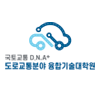Department News
Research Field
Unmanned Autonomous Systems
It provides students with comprehensive learning of the theories, system analysis, and experimental aspects related to the unmanned automation of transportation systems, including autonomous vehicles and unmanned aerial vehicles (drones). Through experiments in system design and implementation, students gain interdisciplinary knowledge necessary for leading research in AI-based future transportation systems.
Electric Power Systems
It provides students with theoretical learning, design, and experiments related to future transportation methods using electric and environmentally friendly power. Through this, students acquire diverse engineering knowledge necessary for research and development in new power systems.
Intelligent Transportation Systems
It focuses on learning theories and technologies aimed at accurately detecting, diagnosing, and evaluating transportation systems using new IT technologies. Based on this information, students explore ways to optimize system operations, enhancing safety, convenience, and efficiency of traffic flow.






